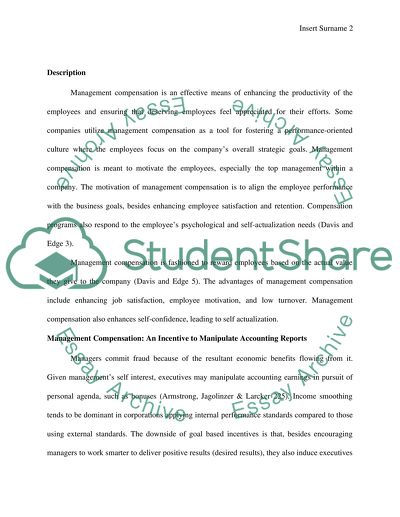Cite this document
(“Management Compensation Research Paper Example | Topics and Well Written Essays - 1500 words”, n.d.)
Retrieved from https://studentshare.org/finance-accounting/1454060-management-compensation
Retrieved from https://studentshare.org/finance-accounting/1454060-management-compensation
(Management Compensation Research Paper Example | Topics and Well Written Essays - 1500 Words)
https://studentshare.org/finance-accounting/1454060-management-compensation.
https://studentshare.org/finance-accounting/1454060-management-compensation.
“Management Compensation Research Paper Example | Topics and Well Written Essays - 1500 Words”, n.d. https://studentshare.org/finance-accounting/1454060-management-compensation.


